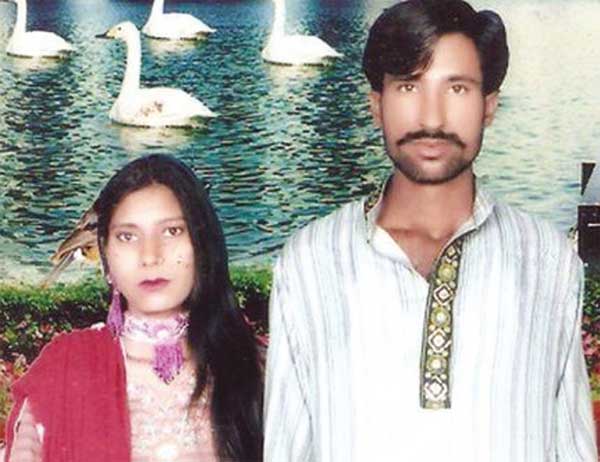Collective madness!
Human civilization has entered the 21st century, genetic science, computer science and other fields have made amazing progress, but with regard to social attitudes, even today, such incidents are seen that remind us of the era of ignorance.
Deaths at the hands of the mob are also counted among such incidents. In India, a gentleman has coined the term “sheep-stealing” for this. Such incidents have increased under the Modi government. Historically, these events have been happening all over the world.
A case of 1906-1907 is taught in the curriculum of American law colleges. When a black suspect was arrested in the police station for the rape of a white girl, the mob gathered outside the police station and killed him. In African countries, even petty thieves are stoned and robbers are beaten to death, because in many African countries the public does not trust the police.
In 2016, a German reporter was reporting from a coastal area in Kenya when a passer-by suddenly appeared, swerved to save him but still injured his leg, and a crowd gathered. done
He was dragged out of the car and started beating her. All his belongings were looted and before he was killed, a police car drove by and saved his life. Cases of taking the law into their own hands are common in Kenya’s capital Mombasa and surrounding areas.
Cases of extrajudicial killings occur all over the world. They reflect public anger, frustration and distrust of the police and the justice system. Sometimes people are killed in public because of false accusations and sometimes due to racial bias. In 2015, a thirteen-year-old boy was beaten to death in Bangladesh, accused of stealing a bicycle.
In February 2017, an armed mob barged into the police station and killed a teenage couple who had run away from home to get married at a police station in Wama, Afghanistan. According to a 2017 University of Illinois study, extrajudicial violence has increased in the American South over the past two decades. The reasons for this are economic as well as cultural. Some sociologists also see these local events in a global context.
The history of anti-Asian violence in the West is bloody. 2021 It marked the 150th anniversary of the largest bloodbath in American history. The incident took place in Los Angeles on October 24, 1871, when an angry mob of 500 people entered a Chinese-populated area of the city, shooting some, stabbing others, and setting up a makeshift gallows to hang others. was given By late night, 19 bodies were strewn across the streets of Los Angeles. Racial hatred was not limited to pro-Americans, but also targeted Chinese immigrants.
In the 19th century, there was a wave of hatred against Asians in America and incidents of violence were common. Such incidents were so common in America at the time that people thought it was an American crime. For this, the term “lynching” was coined in America. But this is a crime that has been and still is happening all over the world.
In Pakistan, there have been many incidents of people taking the law into their hands and killing the accused in the form of a mob instead of presenting them in the courts. According to the research of Foreign Affairs Insights and Review, it is common to torture people in the name of religion in Pakistan. Although no one has been hanged under the blasphemy law yet, between 1990 and 2023, more than 70 people have been killed by mobs on charges of blasphemy.
The most high-profile case is that of Sri Lankan Pari Yantha Kumara, a manager in a garment factory in Sialkot, who was killed on December 3, 2021, on charges of blasphemy, and then his body was set on fire on the street. was given. This incident led to a diplomatic crisis between the two countries and outrage across the world. As a result of the massive investigation, 89 people were arrested and six of them were eventually sentenced to death. Earlier, on April 13, 2017, the Mashaal Khan incident took place.
Mashaal was a journalism student at Abdul Wali Khan University in Mardan. He was brutally murdered by a group of students. This incident also attracted worldwide attention due to its brutal nature. Mashal was known for his progressive views. 61 people were arrested in this case. One of them was sentenced to death, seven to life imprisonment and twenty-five to four years in prison while 26 were acquitted. In November 2014, a Christian couple was beaten to death by a mob in Kot Radha Kishan near Lahore, Dawn newspaper reported.
This incident shocked Pakistanis and the rest of the world. Despite being a reprehensible and heartbreaking incident, it was not a surprising incident in Pakistan. The slain couple Shama and Shahzad were parents of three children and Shama was four months pregnant. Later, the mob threw their bodies into a brick kiln and burnt them.
Both husband and wife worked as bonded labor at the same kiln. Pakistan and Bangladesh are notorious for taking the law into their own hands and mob violence. In Pakistan, Christians, Hindus and other minorities fear their neighbors because they can be executed by mobs if not by courts for blasphemy.
In Saudi Arabia, the criminal is beheaded in the presence of hundreds of people. Public executions are carried out in Iran. Worldwide, executions are the most common in China, followed by Iran and Saudi Arabia, while political activists were flogged in public and journalists in prison under Zia-ul-Haq.
Such punishments incite the entire society to violence. Khurshid Ali Singe, a PhD scholar at NUST, reviewed English newspapers from 2014 to 2017 for research on mob killings and found 22 cases of mob killings. Seven incidents occurred in Punjab, 11 in urban Sindh, Karachi and Hyderabad, zero in rural Sindh, three in KPK and one in Balochistan.
This does not include those who were injured or survived with the timely help of the police. According to his research, the killing by the mob takes place in three cases, either by stealing or snatching a wallet or any other valuable thing, the person who runs away or the kidnapper falls into the hands of the mob, or the mob accuses a person of blasphemy. He becomes enraged by hearing and kills her or is targeted for sexual assault.
15 people were killed during this period due to the first cause. Five cases were reported for religious reasons, while two cases were reported for gender and sexuality. In Punjab, the highest incidence of religious killings occurred with the Christian community followed by the Qadianis. Sometimes Muslims are also killed on the charge of blasphemy. In urban Sindh, those who run away are killed by stealing or snatching a motorcycle.
According to the research of Bahauddin Zakaria University and the University of Amsterdam in the Netherlands, M. Asif, De Vanck and Peter Messini, in addition to Mashaal Khan and Shama and Shahzad of Kot Radha Kishan, whose cases have been mentioned above, in March 2015, Christian in Yohanbad. Babar Nauman and Hafiz Naeem were killed and burnt by mobs accused of bombing churches. In July 2012, Ghulam Abbas was burnt by a mob in Chanigoat town of Bahawalpur district for allegedly desecrating the Holy Quran.
In August 2010, two brothers, Mughees and Muneeb, were killed by a mob in Sialkot on charges of robbery. In April 2017, a man was accused of blasphemy during Friday prayers at the Shahi Masjid in Chitral, but the imam rescued him from the mob and handed him over to the police. In March 2013, a Christian Sawan Masih was charged with blasphemy at Badami Bagh in Lahore. He too was rescued by the police but the angry mob attacked the Christian community and its residents.
According to Mubasher Bukhari of Reuters, in February 2023, a young man named Muhammad Waris was attacked by a mob in Nankana Sahib on the charge of desecrating the Holy Quran, but the police rescued him and locked him in the police station, but the mob attacked the police station and After bringing him out and killing him, he tried to burn his body.
Till more police force reached there and the mob could not burn the body. On May 6, 2023, according to Radio Free Europe/Radio Liberty, an angry mob in northwestern Pakistan attacked a local cleric for blasphemy at a political rally. And killed him.
According to a BBC report, in 2014, an angry mob attacked the homes of Ahmadis in Gujranwala. Locals say the dispute started over a cricket game, but when the dispute escalated, a teenage Ahmadi boy was accused of blasphemy and a mob of hundreds set fire to more than a dozen Ahmadi homes. Three girls and their grandmother were burnt to death.
Only one country is ahead of Pakistan in the number of people killed by mobs accused of blasphemy and that is Nigeria. Legal and policy measures have to be taken to prevent such incidents. Such allegations should be investigated in an efficient and transparent manner and those making false accusations and killing the accused should be punished strictly according to law.
Laws against mob killings
The first law against mob killings was enacted in the United States in 1918. The bill was introduced in Congress by Leonidas Dyer of the Republican Party. He was a progressive person. He was white, but the district he was elected to was predominantly African American.
65 years after a 14-year-old boy was killed by a mob in Mississippi in 1955, a federal bill against such killings was introduced in 2020. The child’s name was Emmett Till. So this law was also named after this child. Lynching is considered a hate crime under federal law. In the form of this law, an attempt has been made to provide posthumous justice to Till and four thousand victims like him.
The post Collective madness! appeared first on Express Urdu.
Collective madness!

